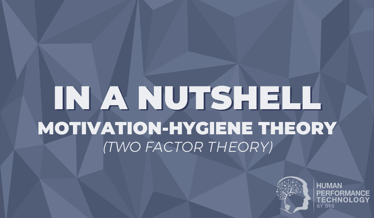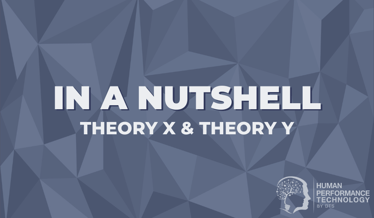In a Nutshell: Cognitive Dissonance
Cognitive dissonance is one of the best-known and most prolifically documented theories in social psychology. Leon Festinger first coined the term in his 1957 book, "A Theory of Cognitive Dissonance."The theory was an extension of his earlier book called “When Prophecy Fails” (1956), which involved Festinger and his colleagues' dealings with a UFO doomsday cult who had prophesied the impending destruction of the Earth at a specific date and time. The researchers decided to infiltrate the cult and document the group's reaction when the prophecy did not come true. Festinger tried to explain how it was possible that certain members actually increased their commitment to the group despite being so obviously wrong. Festinger and other researchers have conducted many experiments to support the theory of cognitive dissonance, and while it is established as a well-known term in psychology, it is much less so in business, despite playing an important role in human dynamics and decision making.
Overview:
Cognitive dissonance is the experience of mental discomfort we feel as a result of holding two opposing cognitions (thoughts) in our head at the same time. In other words, it's that uneasy tension we have when our beliefs or behaviours are contradicted (either by our own actions or from another source). The theory suggests that people will automatically try to eliminate or reduce the feeling of dissonance (disharmony) through a number of different mechanisms, including denial, self-justification and rationalisation. When dissonance is triggered, our beliefs must be adjusted in order to restore the feeling of consonance (harmony).
How we deal with dissonance can be helpful or harmful. It can be helpful, in the instance of an optimistic salesperson who doesn’t take a customer rejection personally since, “It couldn’t have been me they didn’t like; I’m a very likeable person,” and thus helps the salesperson carry on with their job without feelings of doubt or insecurity, or it can be more harmful, such as in the case of the husband who knows that smoking kills, but justifies it to his wife by saying, “It relieves stress and I only smoke once in a while, so it really isn’t a big deal.” Frequently, people will reduce dissonance by means of distorting the truth. For example: "While I believe it's important to always be honest, EVERYBODY exaggerates a little on their resume; therefore it's okay for me to do it." In the case of the UFO cult, the rationalisation provided by their leader was: "This little group, sitting all night long, has spread so much goodness and light that the God of the Universe spared the Earth from destruction."
The theory of cognitive dissonance has important implications for business, especially since dissonance is an extremely subtle and pervasive mental phenomenon (certainly not limited to fringe cult members). For instance, if a manager who already believes in a pre-planned strategy very strongly, having openly stated so on a number of occasions, is then presented with evidence to the contrary, it can result in the feeling of dissonance — and most likely result in a negative reaction to the new information, causing friction between them and the proponents of change. When people make a decision and are later presented with conflicting information, they will typically prefer to adjust the new information to fit their beliefs rather than changing their beliefs to fit the new information (nobody likes to admit they were wrong, especially when the stakes are high). Trying to reduce dissonance by avoiding fault or distorting the truth is a type of behaviour most clearly visible in politicians, but it is actually a very common phenomenon that most of us experience in our everyday lives, and much of the time at a subconscious level.
Sources:
- A Theory of Cognitive Dissonance (1957), Leon Festinger
- When Prophecy Fails (1956), Leon Festinger
- Merriam-webster Dictionary: cognitive dissonance
- Business Dictionary: cognitive dissonance
- Wikipedia: Cognitive dissonance
- The Skeptic's Dictionary: cognitive dissonance
- Cognitive Dissonance and Psychosis (Psychologytoday.com)
- Cognitive Dissonance (Changingminds.org)
- Cognitive Dissonance (Cognitive-dissonance.behaviouralfinance.net)
- Cognitive Dissonance: Festinger & Carlsmith's Study (Explorable.com)
- Cognitive Dissonance: 50 Years of a Classic Theory (2007), Joel M. Cooper
- Cognitive Dissonance: Progress on a Pivotal Theory in Social Psychology (1999), Eddie Harmon-Jones and Judson Mills
- Mistakes Were Made (But Not by Me): Why We Justify Foolish Beliefs, Bad Decisions, and Hurtful Acts (2008), Carol Tavris and Elliot Aronson
This article offers an expanded description of the summary listed in our post 40 Must-Know HR, OD, L&D Models.

Theo Winter
Client Services Manager, Writer & Researcher. Theo is one of the youngest professionals in the world to earn an accreditation in TTI Success Insight's suite of psychometric assessments. For more than a decade, he worked with hundreds of HR, L&D and OD professionals and consultants to improve engagement, performance and emotional intelligence of leaders and their teams. He authored the book "40 Must-Know Business Models for People Leaders."



We Would Like to Hear From You (0 Comments)